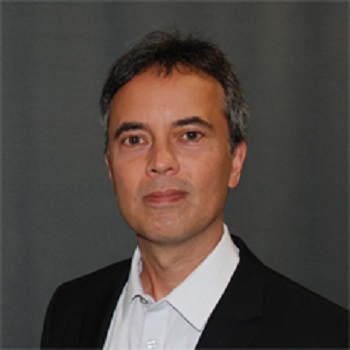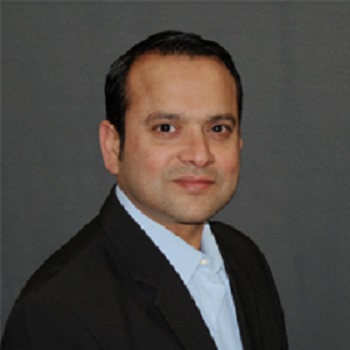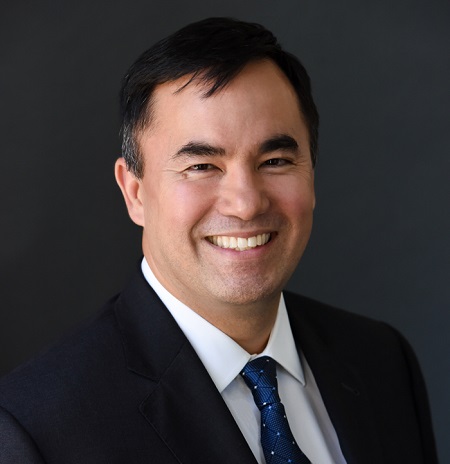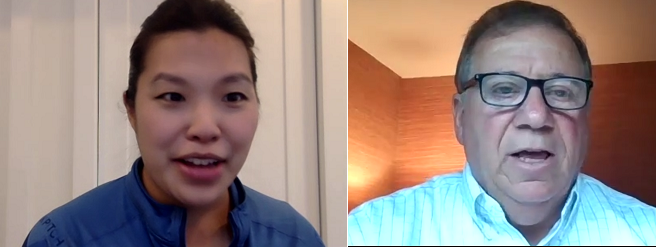Medocity Taps AI for Platform to Help Patients Comply After They Leave the Hospital
It was in 2013 that Raj Agarwal first felt the entrepreneurial itch. At the time, he was CFO and global head of strategy and operations in the Biologics business unit at Novartis, based in East Hanover.
After departing Novartis and doing a brief stint at Medco, in Franklin Lakes, he founded Medocity, “with the goal of closing the gap in care when patients are on their own, at home or at work, between in-person visits with their doctor or care team,” said Agarwal, who is Medocity’s president and CEO.
Medocity provides digital solutions to improve patient outcomes and reduce healthcare costs between visits. The company’s corporate offices are located in Parsippany; there is also a tech office in India, where the bulk of the company’s software development takes place.
At Novartis, Agarwal “gained an appreciation, not just for the business aspects of trying to sell drugs to patients, but for what patients truly go through,” said Terry Maytin, Medocity vice president of market development and commercialization.

“He got an appreciation for the difficulties that cancer patients have when they’re on chemotherapy or when they’re taking cancer drugs, because only half of the solution is the actual drug. The other half is attitude, the type of support you get and whether the patients follow the protocol and do the things that are important beyond the drugs.”
A Seamless, Nonintrusive Process
Agarwal, confirmed this: “It was important for me that the process be seamless and nonintrusive to individuals’ lifestyles, and that we offer patients the broadest options to engage, using any method of their choice ‒ including mobile phones, desktop computers, digital assistants or any number of connected health devices or wearables they may own.
“At that time (and, for the most part, today as well), virtual care consisted of a few basic technology-enabled capabilities available as stand-alone offerings,” Agarwal continued. “My vision was to build a single solution combining four major pillars: condition management, passive monitoring, advanced decision support and secure communications.
“The Medocity Virtual Care Platform is now a reality, a comprehensive solution that helps promote healthier lifestyles, provides early detection of escalating symptoms, and facilitates proactive interventions ‒ to lower healthcare costs and ultimately improve patient outcomes.”
He then added, “If you can do all that, and then give the provider the same platform to contact the patient with messaging or tele-visits, you’re eliminating the need to have four or five applications and multiple vendors.”
“Creating the technology itself required over 600,000 man hours to develop more than 4 million lines of code, over 100,000 clinical rules, and advanced artificial intelligence [AI] embedded throughout the platform,” Raj Agarwal
Medocity is currently working with Montefiore Medial Center, in New York. The hospital is using the Virtual Care Platform for heart failure patients. “When they send patients home who have had an artificial heart implanted,” said Maytin, citing an example, “those patients have a higher readmission rate, so you need to watch their status, especially if they’re gaining weight, or if they have a temperature that’s indicative of an infection, so there are certain critical protocols that are being followed.” The Montefiore staff will get an alert when an issue with a patient arises; and from there, they can contact the patient.
The Medocity platform also has a virtual toolbox that helps patients who have many different medications to take throughout the day by sending reminders. The platform will pose a question to the patient and compliance is monitored by medical center staff.
Medocity faced challenges, especially in its early years. “Creating the technology itself required over 600,000 man hours to develop more than 4 million lines of code, over 100,000 clinical rules, and advanced artificial intelligence [AI] embedded throughout the platform,” Agarwal explained.
Key Goal for 2019: Building Out AI
“All healthcare data, whether passively monitored or manually entered, is subjected to these clinical rules and anomaly-detection algorithms to determine if specific case-related thresholds are breached. If there is an issue detected, the system will render unique, patient-specific guidance and send intelligent alerts to care professionals for immediate follow-up or direct intervention using tele-visits or secure messaging.”
Medocity won the 2018 MedTech Breakthrough Award for the “Best Virtual Care Solution.” “The Breakthrough Award was an unexpected honor,” said Maytin proudly. “We did nothing to apply for it; it just kind of came our way, which was good. It was great recognition for our effort, and we were pleased to get that.”
He also mentioned the recognition given by the New York office of Gartner, a global tech research and advisory firm, which cited Medocity for its work with AI. “They got the open notion of the platform, which I’ve described, but they kind of keyed in on who we integrate with digital assistance, so that’s the kind of cutting-edge stuff we’re focusing on now.”
Building out AI is a key Medocity goal for 2019. “We will continue to invest in artificial intelligence and expand our clinical capabilities, supporting additional chronic conditions and rare diseases based on market demand,” Agarwal said.
At Medocity’s offices in New Jersey, the bulk of the employees are Garden Staters, and the company is looking to hire locally as it expands. “We are looking to ramp up our hiring,” said Maytin. “We have about 15 people here, but I’d like to see that triple in the next year.”
Per Maytin, location is key. “We are located in ‘Pharma Central.’ There is a big pharma corridor here, and pharma got its start in New Jersey, so we’re drawing upon that expertise.”
Agarwal agreed. “Medocity is located in a state that is known globally for its biopharmaceutical and medical device industries. New Jersey is home to 14 of the world’s 20 largest pharmaceutical companies, and includes 13 teaching hospitals and four medical schools. Additionally, we’re close to two major cities: New York and Philadelphia. Medocity continues to leverage this unique talent pool to refine and enhance our unique offering, to the benefit of caregivers and patients.”




